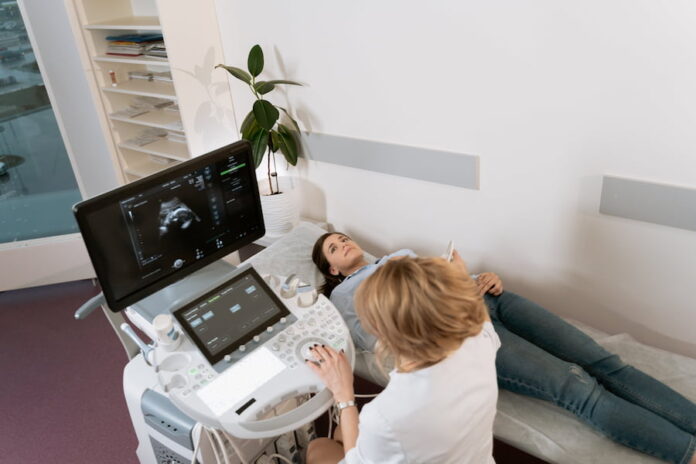Maintaining the health and well-being of each family member is paramount, which necessitates regular health screenings across different age groups. These screenings can detect potential health issues early when they’re most treatable, and provide valuable insights into one’s health status, guiding necessary lifestyle adjustments or medical interventions.
This comprehensive checklist outlines essential health screenings tailored for various family members, ensuring everyone, from the youngest to the oldest, maintains their health effectively.
Infants And Toddlers (Birth To 3 Years)
The infancy and toddler stages, from birth to 3 years, are foundational for a child’s long-term health and development. During this pivotal period, children should receive comprehensive health screenings and preventive measures to ensure they’re developing appropriately and are safeguarded against various common childhood ailments.
Some health screenings available for infants and toddlers include:
– Newborn Screening: This is one of the first critical steps in this journey. Conducted shortly after birth, these screenings encompass a broad range of tests aimed at identifying metabolic, genetic, and endocrine disorders that could significantly impact a child’s long-term health. Additionally, hearing loss, which can profoundly affect a child’s ability to develop communication skills, is also screened for during this initial phase.
– Growth Monitoring: This ongoing process plays a vital role in early childhood healthcare. Regular pediatric check-ups focus on measuring weight, height, and head circumference. These metrics are compared to standardized growth charts to confirm appropriate growth.
– Developmental Screenings: These are another cornerstone of early childhood health care. Scheduled at critical milestones—9, 18, and either 24 or 30 months—these screenings are designed to detect any developmental delays or disabilities. Early identification of such issues is crucial as it allows for timely intervention, significantly improving outcomes for affected children.
– Immunizations: These form the bedrock of preventive care in early childhood, protecting against many infectious diseases, such as measles, mumps, rubella, and polio. Adherence to the immunization schedule recommended by health authorities is essential for individual and community health, protecting against outbreaks of these potentially debilitating diseases.
Ensuring the health and development of infants and toddlers through these screenings and preventive measures lays the groundwork for a healthy childhood and beyond. For families seeking a deeper understanding of the medical services available to support this critical period of growth, more information is readily available to guide and inform healthcare decisions.
Children (4 To 12 Years)
For children aged 4 to 12 years, a period of rapid growth and learning, the emphasis on regular health assessments becomes crucial to their overall development and academic success. This childhood period is marked by significant physical, cognitive, and emotional changes, necessitating a comprehensive approach to health care that includes various screenings and preventive measures. Some health screenings for children include:
– Annual Physical Exams: These are foundational to monitoring a child’s health, involving thorough assessments of growth, Body Mass Index (BMI), and vision and hearing tests. These exams ensure that children are developing healthily and can uncover any potential issues that might impede their physical or educational progress.
– Dental Check-ups: These are recommended biannually to fend off tooth decay and instill the importance of oral hygiene from an early age. These visits help prevent cavities and teach children the value of good oral health practices.
– Vision And Hearing Tests: These are conducted regularly to identify any impairments hindering a child’s ability to learn and interact socially. Early detection of such issues allows for timely intervention, ensuring that children have the necessary support to thrive in and out of the classroom.
– Immunizations: These are crucial for safeguarding children from various infectious diseases, with the schedule extending into this age range to include vaccines such as the HPV vaccine, typically administered around 11-12 years. Staying up-to-date with vaccinations is essential for maintaining individual and public health.
By ensuring that children undergo these essential health checks, parents and guardians can significantly contribute to laying a strong foundation for their children’s future health and success.
..
Teenagers (13 To 19 Years)
During the teenage years, from 13 to 19, individuals undergo profound transformations that influence their physical, emotional, and social development. This period, marked by rapid changes and challenges, necessitates a tailored approach to health screenings and preventive care that addresses the unique needs of adolescents. The following are some health screenings for a teenage family member:
– Annual Physical Exams: These exams during these years are critical, focusing on monitoring growth, the stages of puberty, and mental health. These include risk assessments for behaviors such as smoking, substance abuse, and other risky activities, offering a platform for guidance and intervention.
– Dermatological Screenings: These become increasingly relevant due to the prevalence of acne during puberty, compounded by the potential risk of skin cancer. Teenagers with a family history of skin conditions or those exposed to significant levels of UV radiation should pay attention to their skin health.
– Mental Health Assessments: These are paramount, given teenagers’ heightened social and academic pressures. Screening for depression, anxiety, and other mental health concerns is essential for early detection and support, facilitating a healthier transition into adulthood.
– Reproductive Health Counseling: This is tailored to individual needs and lifestyles, covering crucial topics such as sexually transmitted infections (STIs) and contraception. This aspect of healthcare is vital for promoting safe practices and informed choices among teenagers.
By focusing on these critical areas, healthcare providers can help teenagers navigate this complex stage of life, laying the groundwork for healthy adult years.
Adults (20 To 64 Years)
For adults aged 20 to 64, health screenings become a pivotal aspect of preventive healthcare, focusing on the early detection and management of risk factors associated with chronic diseases, maintaining reproductive health, and addressing age-related conditions. These screenings are tailored to monitor and mitigate the risk of developing serious health issues, ensuring a proactive approach to maintaining health and well-being. Some options are:
– Blood Pressure Screening: This is advised at least every two years for those at normal risk, with more frequent screenings recommended for individuals at an increased risk of hypertension. Regular monitoring helps in the early detection and management of high blood pressure, a key risk factor for heart disease.
– Cholesterol Profile Assessments: These are recommended every 4-6 years for adults with normal risk factors, with more frequent screenings for those at a higher risk of heart disease. These tests are crucial for identifying high cholesterol levels, which can be a silent contributor to heart disease and stroke.
– Diabetes Screening: This is particularly recommended for adults with a Body Mass Index (BMI) of 25 or higher and additional risk factors such as a family history of diabetes. Starting at age 45, screening is advised for all adults to detect diabetes or prediabetes early.
– Cancer Screenings: These play a significant role in adult health care, with recommendations including mammograms for women every two years starting at age 50 and colorectal cancer screening singapore for both men and women beginning at the same age. These screenings are vital for early detection, which significantly improves treatment outcomes.
– Bone Density Screening: This is recommended for women over the age of 65 and younger women at increased risk of osteoporosis. Early detection through these screenings allows for timely intervention to prevent fractures and other complications associated with bone loss.
By adhering to recommended screening schedules and seeking personalized advice from healthcare providers, adults can significantly contribute to their long-term health, ensuring a higher quality of life and reducing the risk of chronic diseases and conditions associated with aging.
Older Adults (65 And Older)
Health screenings become increasingly critical for older adults aged 65 and over to manage chronic conditions, preserve mobility, and ensure a high quality of life. This demographic faces unique health challenges, making regular check-ups and preventive measures essential to their healthcare regimen. Some health screenings for older members of the family include:
– Annual Wellness Visits: These offer a comprehensive review of an older adult’s medications, functional status, and a wide range of health concerns that are especially relevant as individuals age. These exams are pivotal in managing existing health conditions and preventing new ones from developing.
– Hearing And Vision Tests: These are crucial for maintaining a senior’s quality of life and independence. Regular screenings can lead to adjustments in hearing aids or eyeglass prescriptions, significantly enhancing daily functioning and environmental interaction.
– Colorectal Cancer Screening: This is recommended until the age of 75, with the screening frequency tailored to individual risk factors and the chosen screening method. Early detection through these screenings can lead to more effective treatment and better outcomes.
– Pneumococcal And Influenza Vaccines: These are essential vaccinations for older adults to prevent infections that can be particularly severe in this age group, contributing to maintaining their health during the flu season and against pneumococcal diseases.
– Memory Screening: This plays a key role in the early detection of cognitive impairments or dementia. These assessments are crucial for early intervention, which can significantly impact the management and progression of cognitive decline.
By ensuring regular wellness visits, screenings, and vaccinations, older adults can enjoy a better quality of life, with increased independence and well-being, making these years truly golden.
Conclusion
Regular health screenings are a cornerstone of preventive medicine, offering a proactive approach to managing health at every life stage. By keeping the information mentioned above in mind, the family can tailor these screenings to the specific needs of each member to ensure everyone, from the youngest to the oldest, receives the appropriate care and intervention to lead a healthy life. This personalized approach maximizes the effectiveness of health screenings, supporting long-term well-being and quality of life for all family members.
Did you find this helpful? Check out our other helpful articles on our website.
Read Also
- Modern Approaches to Adolescent Mental Health Treatment for Lasting RecoveryWith increasing numbers of teens experiencing emotional and behavioral health concerns, adolescent mental health treatment has become more essential than ever. Conditions such as anxiety, depression, trauma and mood instability are on the rise, and effective support must evolve with these growing needs. Today’s treatment models blend evidence-based therapy with flexible access and holistic care, giving… Read more: Modern Approaches to Adolescent Mental Health Treatment for Lasting Recovery
- How to Find a 5-Star Dentist Near YouChoosing a dentist is more than just finding someone who can clean your teeth. It’s about selecting a trusted partner in your long-term oral health. A 5-star dentist not only provides excellent clinical care but also delivers a positive patient experience, from the moment you walk in until the moment you leave. Whether you’re new… Read more: How to Find a 5-Star Dentist Near You
- Your Easy-Peasy Guide to Brewing Amazing MatchaHey there! So, you’ve heard all the buzz about matcha – that vibrant green powder that’s not just pretty but packed with good stuff? It can seem a little fancy and intimidating at first, but trust me, making a delicious cup at home is simpler than you think. Forget complicated ceremonies for now; let’s just… Read more: Your Easy-Peasy Guide to Brewing Amazing Matcha
- Embracing Holistic Wellness: Insights from a Lansing, MI Health CenterReframing Health: Moving Beyond Symptom Management Treating only symptoms often offers quick relief, yet long-term results stay out of reach. When care zeroes in on isolated complaints, the bigger picture, such as stress, behavior, or lifestyle, often gets missed. Research shows that whole-person care, which looks at physical, emotional, and environmental factors, yields better outcomes… Read more: Embracing Holistic Wellness: Insights from a Lansing, MI Health Center
- VO₂ Max Testing Explained: What It Is & Why It Matters for Your HealthVO₂ max sounds like a term reserved for elite athletes, but it’s among the most accurate measures of your lifetime and general condition. Moreover, it goes beyond performance. Monitoring your VO₂ max will help you to ascertain your body’s capacity to control stress, its oxygen consumption efficiency, and your internal ageing process. If you have… Read more: VO₂ Max Testing Explained: What It Is & Why It Matters for Your Health
- So, what exactly is matcha?Think of matcha as green tea turned up to eleven! Instead of steeping leaves and tossing them out, matcha is made by grinding whole green tea leaves into this super-fine, vibrant green powder. You whisk it right into hot water (or milk!), meaning you’re drinking the entire leaf. That’s why folks say you get way… Read more: So, what exactly is matcha?
- How to Tell When It’s Time for Professional Senior Care SupportCaring for an aging loved one is a journey filled with love, patience, and difficult decisions. One of the toughest choices families face is knowing when it’s time to seek extra help. In this article, trusted Los Angeles caregivers for seniors explore the signs that it might be time to bring in professional support, not… Read more: How to Tell When It’s Time for Professional Senior Care Support
- Reporting a Work Injury: What Deadlines You Need to KnowAfter a workplace injury, time isn’t always on your side. Many employees aren’t aware that there are strict deadlines for reporting a work-related injury, and missing that window can put your entire claim at risk. Whether your injury was sudden or developed gradually over time, it’s essential to act quickly and follow the proper steps.… Read more: Reporting a Work Injury: What Deadlines You Need to Know









